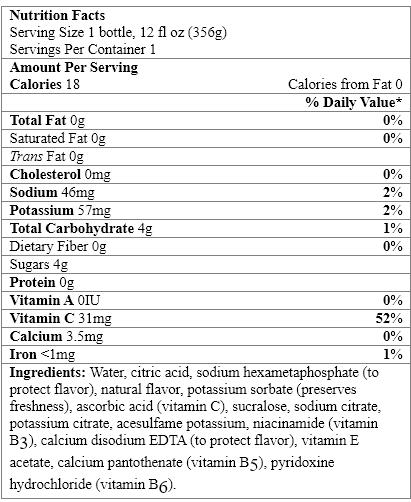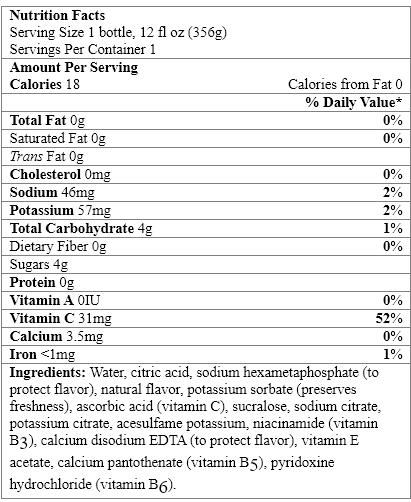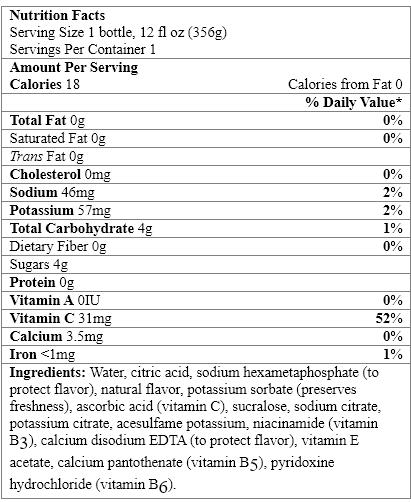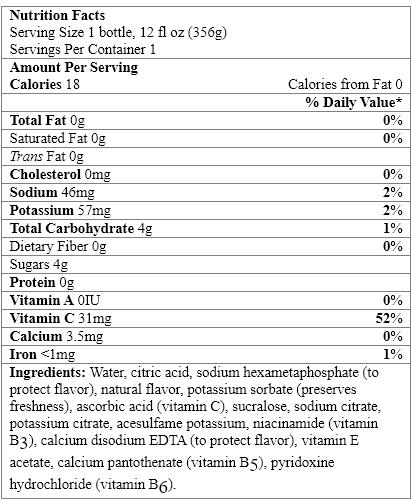Exam 10: Performance Nutrition
Exam 1: Food Choices and Human Health80 Questions
Exam 2: Nutrition Tools: Standards and Guidelines80 Questions
Exam 3: The Remarkable Body80 Questions
Exam 4: The Carbohydrates: Sugar, Starch, Glycogen, and Fiber80 Questions
Exam 5: The Lipids: Fats, Oils, Phospholipids, and Sterols80 Questions
Exam 6: The Proteins and Amino Acids79 Questions
Exam 7: The Vitamins80 Questions
Exam 8: Water and Minerals85 Questions
Exam 9: Energy Balance and Healthy Body Weight82 Questions
Exam 10: Performance Nutrition80 Questions
Exam 11: Nutrition and Chronic Diseases79 Questions
Exam 12: Food Safety and Food Technology80 Questions
Exam 13: Life Cycle Nutrition: Mother and Infant80 Questions
Exam 14: Child, Teen, and Older Adult80 Questions
Exam 15: Hunger and the Future of Food80 Questions
Select questions type
What is the best way for athletes to ensure that they have adequate sodium levels in their bodies?
Free
(Multiple Choice)
4.7/5  (44)
(44)
Correct Answer:
C
The ability of the vital organs and metabolism to sustain moderate to high-intensity muscle exercise for prolonged periods is called _____.
Free
(Multiple Choice)
4.8/5  (27)
(27)
Correct Answer:
D
Which of the following beverages should not be used by athletes for fluid replacement because of its adverse effects?
Free
(Multiple Choice)
4.9/5  (32)
(32)
Correct Answer:
C
Hypothermia is a threat to physically active people in hot, humid weather .
(True/False)
5.0/5  (38)
(38)
How much carbohydrate should a 175-pound athlete, who is in training for 4 to 5 hours per day, consume each day in order to increase glycogen storage in his body.
(Multiple Choice)
4.7/5  (39)
(39)
Use the sports drink label to answer the following question.  What can be said about the sodium content of this beverage?
What can be said about the sodium content of this beverage?
(Multiple Choice)
4.9/5  (34)
(34)
Describe the composition and characteristics of an ideal pregame meal at 1, 2, and 3 hours before competition.
(Essay)
4.8/5  (37)
(37)
Active people need nutrient-dense foods such as _____ to supply vitamins, minerals, and phytochemicals.
(Multiple Choice)
4.8/5  (37)
(37)
Use the sports drink label to answer the following question.  If an athlete has lost 2 lbs of weight during vigorous exercise, how much of this sports drink should he consume for rehydration?
If an athlete has lost 2 lbs of weight during vigorous exercise, how much of this sports drink should he consume for rehydration?
(Multiple Choice)
4.9/5  (36)
(36)
A person who continues moderate-intensity activities for more than _____ minutes begins to use less glucose and more fat for fuel.
(Multiple Choice)
4.8/5  (44)
(44)
An athlete in the early weeks of an aerobic training program develops a decreased hemoglobin concentration but does not report disproportionate fatigue. Which of the following statements is true of the athlete's decreased hemoglobin levels?
(Multiple Choice)
4.7/5  (41)
(41)
Athletes who lose a great deal of sodium in their sweat may be prone to :
(Multiple Choice)
4.9/5  (36)
(36)
Use the sports drink label to answer the following question.  How will this sports drink help an individual who takes a 45-minute walk?
How will this sports drink help an individual who takes a 45-minute walk?
(Multiple Choice)
4.8/5  (30)
(30)
Use the sports drink label to answer the following question.  What would be the performance effects of carbohydrate in this sports beverage?
What would be the performance effects of carbohydrate in this sports beverage?
(Multiple Choice)
4.8/5  (38)
(38)
The daily recommended protein intake for endurance athletes ranges from _____ grams of protein per kilogram body weight.
(Multiple Choice)
4.8/5  (33)
(33)
What percentage of water loss is likely to cause an athlete to collapse?
(Multiple Choice)
4.9/5  (29)
(29)
Identify the nutrient that has the ability to reduce tissue inflammation.
(Multiple Choice)
4.9/5  (36)
(36)
Showing 1 - 20 of 80
Filters
- Essay(0)
- Multiple Choice(0)
- Short Answer(0)
- True False(0)
- Matching(0)